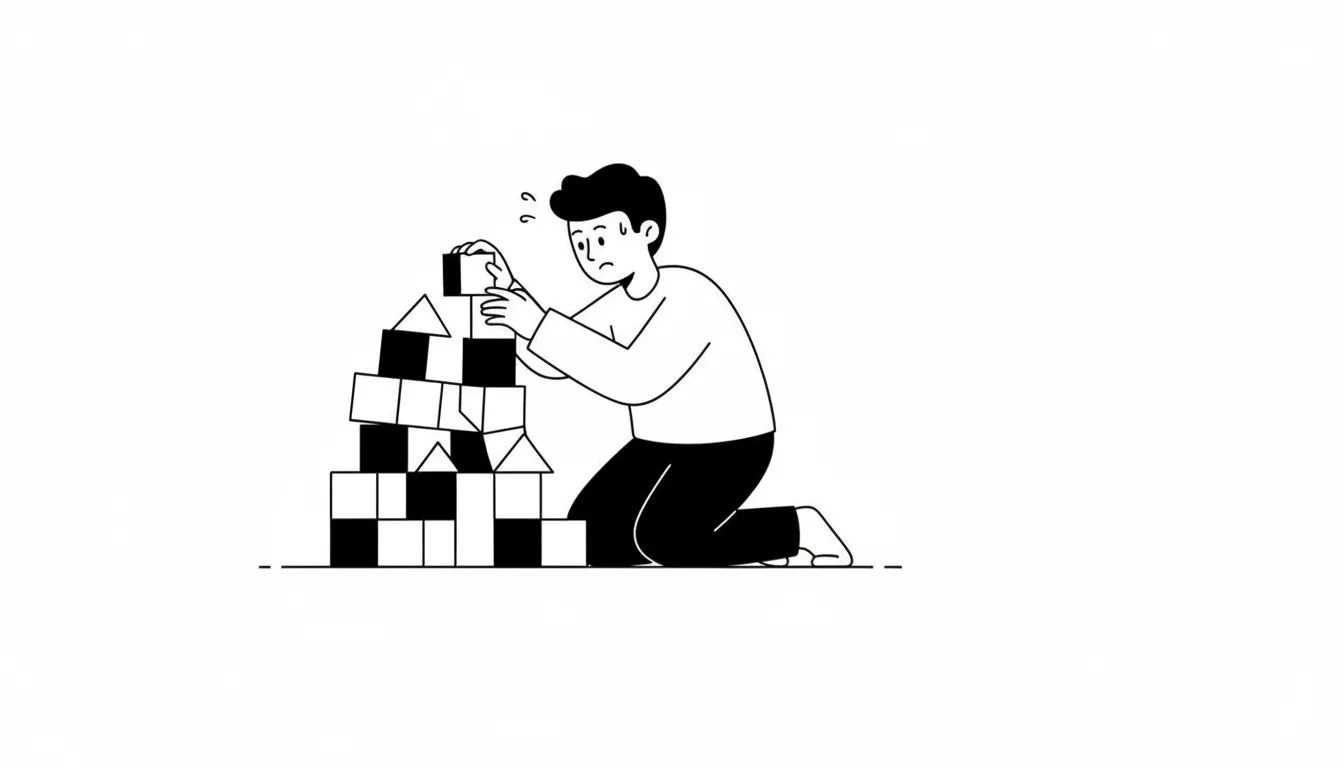
Forming Adjectives in English
In this post about word transformation, you will learn the different suffixes that can be added to nouns, verbs and other words in order to form adjectives.

Table of contents
Today’s post will deal with another aspect of word transformation (or word formation). In this case I will focus on how to form adjectives. Just as with other aspects of the English language, there are certain patterns that can be followed in order to form new adjectives from existing words. In this post, we’ll take a closer look at how to form adjectives in English, with a focus on some of the most common patterns.
What are adjectives?
Adjectives are words that modify and describe nouns. An adjective is a type of word that complements the noun and provides more information about it, either by specifying general qualities, detailing particular characteristics that are inherent to it, or by delimiting its scope.
How do we form adjectives?
Unfortunately, there isn’t a general rule which you can follow to form adjectives. In many cases, in fact, these adjectives don’t even derive from another word. For instance, adjectives like red, small or flat, are not formed through any particular word formation process.
Therefore, in this post we will focus only on those which are formed through a process that can be explained; in this case: suffixation.
But firstly, let’s take a look at the typical adjective suffixes and some examples:
| SUFFIX | ADJECTIVES EXAMPLES |
| -able, -ible | comprehensible, understandable, comfortable, predictable, visible |
| -al, -ial | facial, commercial, industrial, comical, natural |
| -ful | beautiful, colourful, hopeful, healthful |
| -ic | classic, heroic, manic, robotic, strategic |
| -ical | classical, comical, philosophical, hysterical |
| -ish | girlish, selfish, yellowish, childish, Spanish |
| -ive, -ative | attractive, competitive, sensitive, creative, imperative |
| -less | childless, doubtless, questionless, priceless |
| -eous, -ious, -ous | outrageous, ferocious, adventurous, herbaceous |
| -y, -ly | angry, hungry, grumpy, corny, cloudy |
| -ent, -ant | confident, competent, efficient, dominant |
Now, we’ll see some adjectives (including some from above) and how they were formed. Please note how some spelling changes take place in many cases.
Forming Adjectives from Nouns
In the following table, you can see the different methods to form adjectives from nouns, including the suffixes, the inherent meaning of the suffix, the nouns and their transformation into adjectives.
| SUFFIXES | MEANING | NOUNS | ADJECTIVES |
| -al, -ial | relating to | norm music industry | normal musical industrial |
| -ic, -ical | having the nature of caused by | class economy romance hero | classical economic/economical romantic heroic |
| -ful | full of | beauty harm peace | beautiful harmful peaceful |
| -less | without lacking | end motion speech | endless motionless speechless |
| -ish | origin nature the same features as | Britain Spain child yellow fool | British Spanish childish yellowish foolish |
| -eous, -ious, -ous | quality nature | adventure ambition anxiety danger | adventurous ambitious anxious dangerous |
| -y | like | anger wealth wind wit | angry wealthy windy witty |
| -ary | relating to quality or place | custom moment | customary momentary |
| -like | the same features as | child worm | childlike wormlike |
Now let’s see some examples of sentences with both noun and adjective forms:
| NOUN | ADJECTIVE |
| John loves going on adventures. | John’s a very adventurous person. |
| You’re behaving like a child! | Don’t be so childish! |
| The creature had a body like a worm. | THe creature had a wormlike body. |
| The list seemed to have no end. | The list seemed endless. |
Forming Adjectives from Verbs
Here’s a cool table with the suffixes that some verbs take and their transformation into adjectives. I’ve also added the intrinsic meaning of the suffix, which helps to understand the meaning of the final adjective after the transformation.
| SUFFIXES | MEANING | VERBS | ADJECTIVES |
| -ive | causing effect | act create talk attract | active creative talkative attractive |
| -able, -ible | able, can do | read speak break enjoy | readable speakable breakable enjoyable |
| -ful | full | play | playful |
| -ent, -ant | performing agent | obey resist expect please | obedient resistant expectant pleasant |
Now let’s see some examples of sentences with both noun and adjective forms:
| VERB | ADJECTIVE |
| She obeys the teacher. | She is obedient to the teacher. |
| We enjoyed the weekend very much. | The weekend was very enjoyable. |
| Mary talks too much, doesn’t she? | Mary’s very talkative, isn’t she? |
Forming Adjectives from Verbs with -ed/-ing
Another way to form adjectives from verbs is to use the past or present participles of the verbs, that is, their -ed or -ing forms. For instance:
| VERB | ADJECTIVE -ED (PAST PARTICIPLE) | ADJECTIVE -ING (PRESENT PARTICIPLE) |
| to amuse | amused | amusing |
| to interest | interested | interesting |
| to surprise | surprised | surprising |
| to bore | bored | boring |
Remember that adjectives ending in -ed are used when the subject feels some way, whereas -ing adjectives are used when the subject produces the feeling. For more info about these adjectives visit this previous post, where this point is explained in more depth.
Forming Adjectives from Other Adjectives
There are several possibilities to form adjectives from other adjectives. Let’s see a couple of cases.
Comparatives and Superlatives (suffixation)
The most common way to form an adjective from another adjective is when we use comparatives or superlatives from one-syllable adjectives or two-syllable adjectives ending in -y.
Remember that the ending suffixes for these are -er and -est respectively, and that some spelling rules may apply (double the final consonant, change the -y for -i, etc.). For example:
This TV is very big, but mine’s bigger.
He’s extremely happy. He’s probably the happiest person I know.
Prefixation
Also, adjectives can be modified by adding a prefix to them. For instance:
- possible → impossible
- regular → irregular
- logical → illogical
- etc.
However, we will see these in a future post, so keep an eye out for it.
Warning: Adjectives Ending in -ic/-ical
In the first table (Adjectives from Nouns), we have seen some adjectives that could have these two endings: -ic or -ical. However, it must be said that their meanings usually vary.
This difference is not the same for all of them, so whenever you come across a pair like economic/economical or historic/historical, make sure you learn the difference by looking them up in a dictionary. For the moment, I’m going to leave you with a couple of links so you learn some pairs:
Download this post as a PDF
If you’d like to enjoy this content offline, feel free to hit the button at the top of this article to subscribe to my newsletter and download the text as a PDF file. 🙂
I hope you found this post useful. If you did, don’t forget to share with your friends and family. 🙂
I’ll see you in the next post. Until then, don’t forget to keep smiling!
Andrea says:
You are a genius. All your material and videos are the best. They help me so much in my classes. Thanks a lot!! From Argentina. ANdrea
Luis @ KSE Academy says:
Hey Andrea! Thanks a lot for your feedback. You’re the best! 🙂